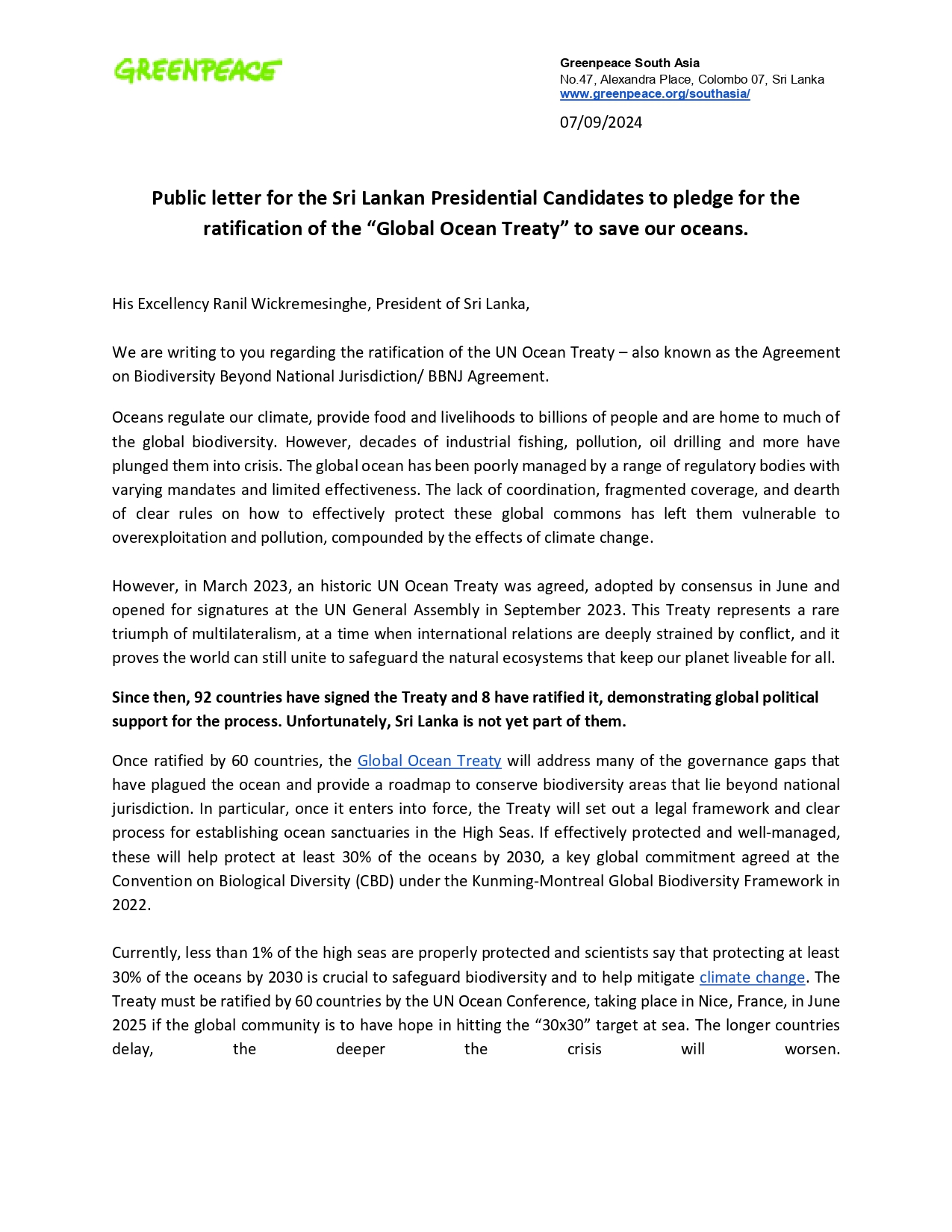A year ago, during the UN General Assembly, more than 80 countries signed the Global Ocean Treaty (also known as the High Seas or Biodiversity Beyond National Jurisdiction – BBNJ) with fine words and big promises. But there is still work to do.
The Treaty is a powerful tool to create large protected areas on the High Seas beyond national jurisdiction, that is to say offshore 200 nautical miles (or 370 kilometers) from the coastlines, where marine life can not only recover from industrial overfishing and marine pollution, but also thrive. A healthy Ocean is vital to protect the climate, and to support the livelihoods of millions of people around the world — coastal communities, fishers, seafarers and everyone who depends on it. The Global Ocean Treaty will only enter into force when at least 60 governments have written it into their national law and, as of today, only eight countries have completed the ratification process [1], far from the 60 ratifications needed for the Treaty to enter into force.
“The High Seas are home to millions of species and ecosystems, but less than 1% are fully protected. They are under increasing pressure from a range of threats, including industrial fishing, pollution and the emerging deep sea mining industry”, reminds Gayani Chathurika Punchihewa, Deputy Programme Director for Engagement at Greenpeace South Asia. “Our oceans are running out of time – the era of ocean destruction must come to an end.”
This year, Sri Lanka and the wider South Asia region have again suffered from heatwaves, heavy rains, floods and mudslides causing too many casualties. Our environment, the Climate, the Forest, the Ocean are all connected and supporting one another. Our leaders need to understand it and start protecting ecosystems that can best mitigate climate change and extreme weather events. Protecting the wide Ocean with a Global Treaty to create large scale sanctuaries on the High Seas is a good start, and one within reach.
Now is the time to make history. Greenpeace South Asia is calling on all the candidates to the Sri Lankan Presidency for their commitment to sign and ratify the Global Ocean Treaty once they come into office, in order to safeguard ocean biodiversity, support climate change mitigation and the future of the next generations.

Leave a Reply